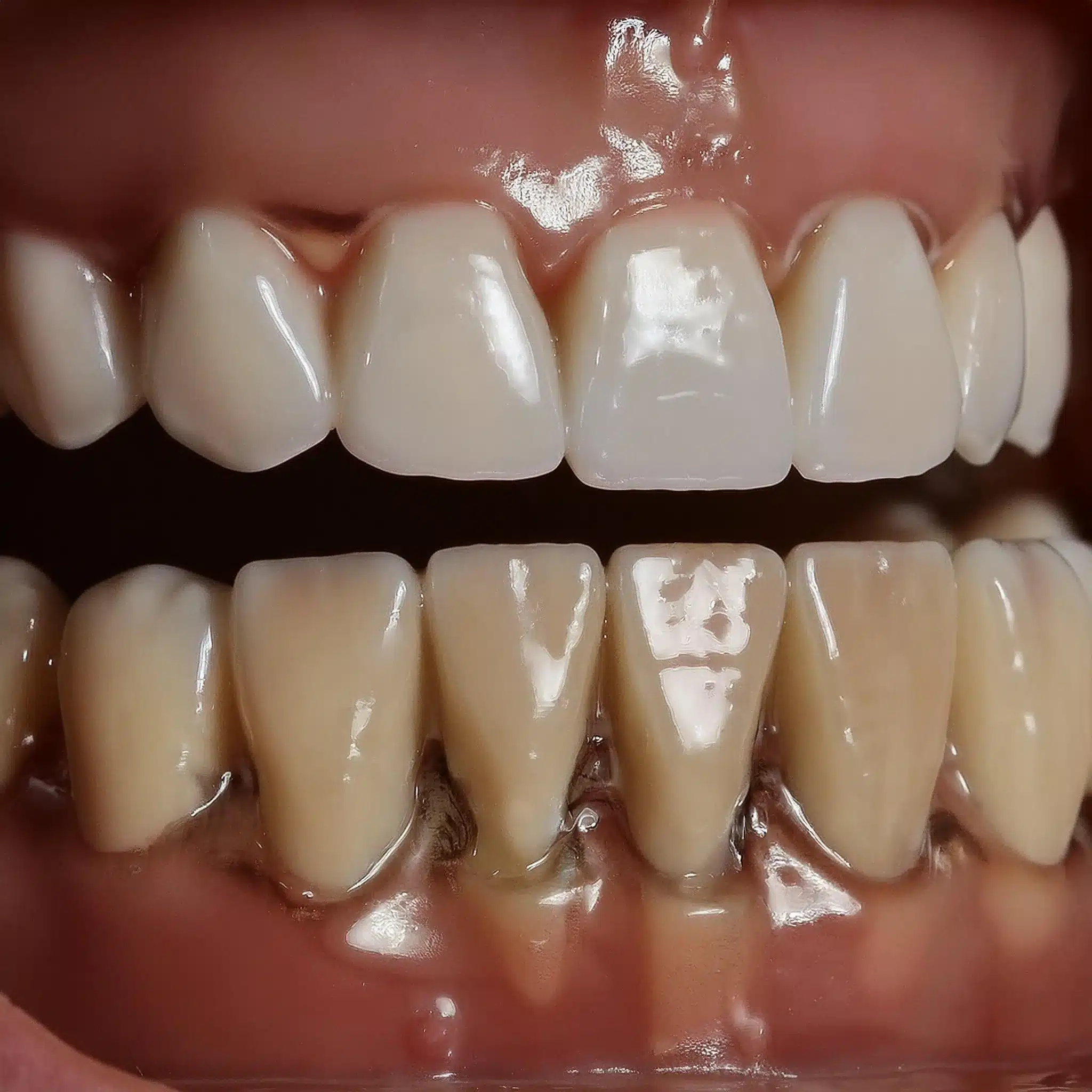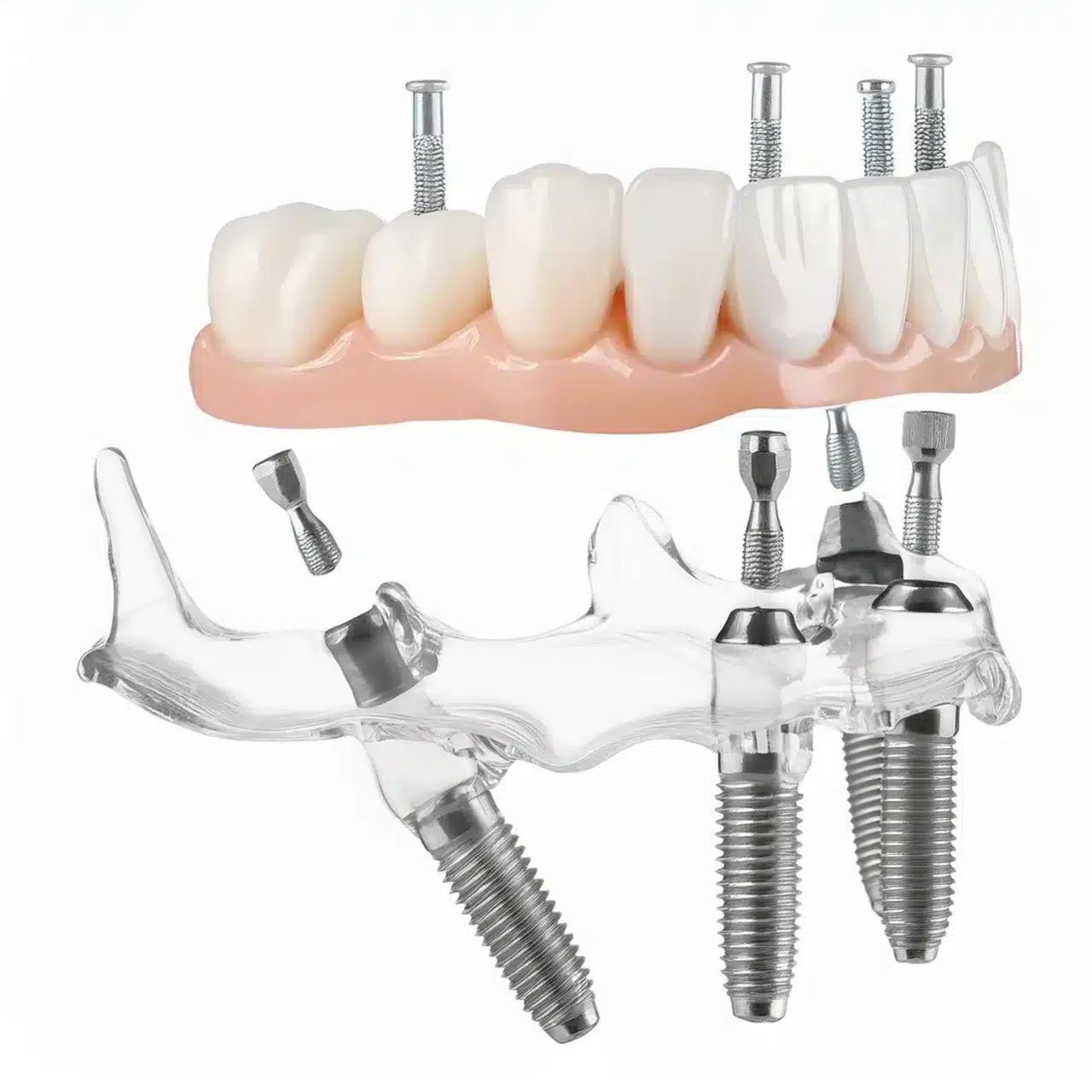Traditional dental implants vs Angled Implants dentaires All-on-4: If you’re considering full arch restorations but can’t decide which implant option is best for your jawbone health and budget, you’re not alone.
Many patients struggle to choose between traditional and angled All-on-4 implants, wondering which one will give you the most natural-looking results, minimal recovery time and the most cost-effective solution.
What’s the difference between Traditional and Angled All-on-4 Implants?
Traditional implants are straight, while angled All-on-4 implants, set at 45 degrees, suit patients with jawbone loss. Differences include:
Procedure: Angled implants require less surgery.
Bone Needs: Less bone is needed, ideal for low-density cases.
Cost: Angled implants are more affordable, from €6,000.
Aesthetics & Functionality: Both look natural, with angled implants offering immediate function.
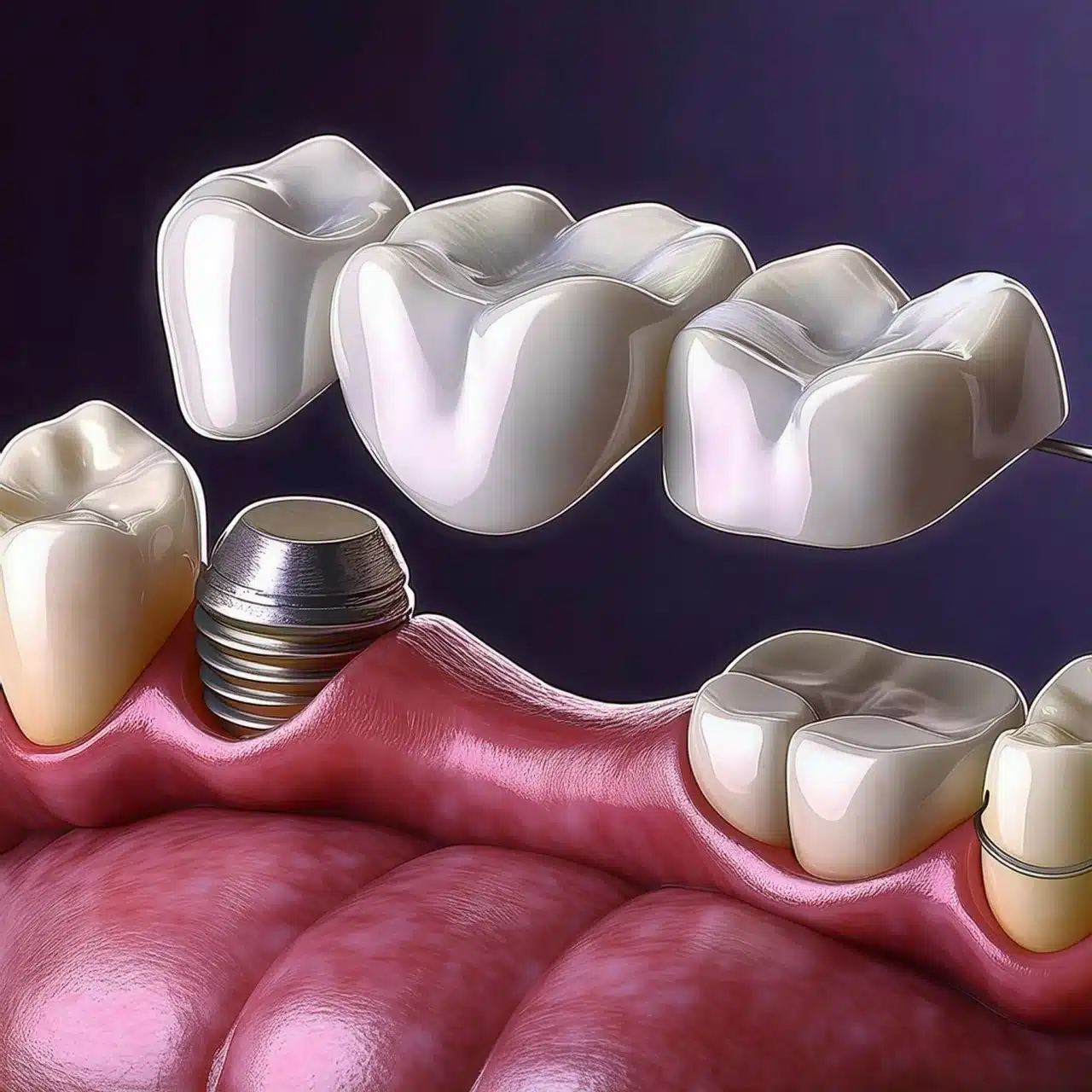
Traditional vs Angled All-on-4 Implants Number of Implants
Implants dentaires traditionnels All-on-4 implants need 4-6 implants per arch, depending on the patient’s bone density and complexity of the case (1).
Angled All-on-4 implants can achieve the same stability and support with fewer implants, so it’s a more efficient option for some patients (2).
Implant Placement and Angle
Implants dentaires traditionnels are placed straight into the bone, which is challenging for patients with significant bone loss (3).
Angled implants are placed at 45 degrees, which allows for better force distribution and is good for patients with bone loss (4).
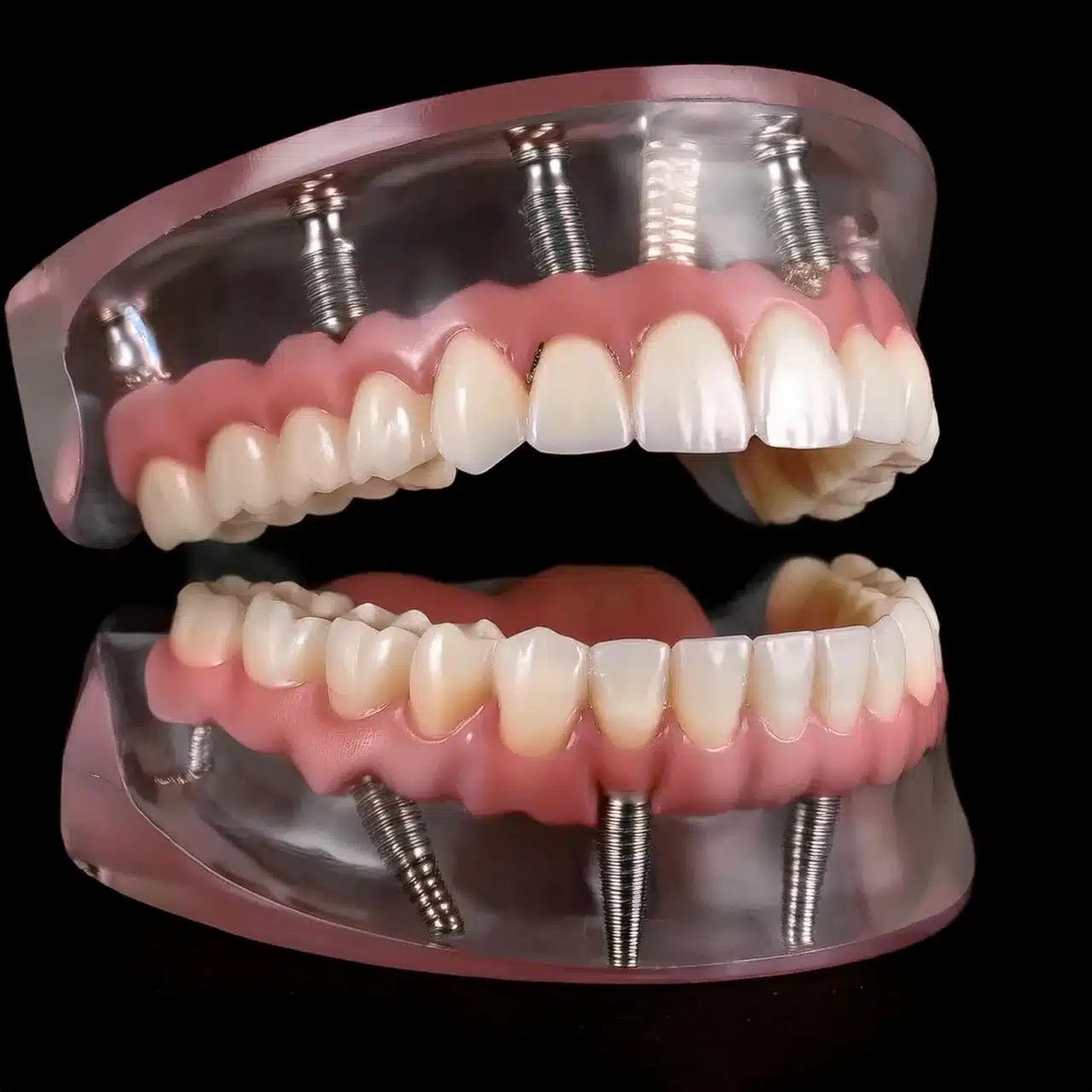
Densité osseuse
Implants dentaires traditionnels need a certain amount of bone density for stability and long-term success (5).
Angled implants can be used in cases where bone density is lower, as they can be placed in areas with more bone with no need for bone grafting (6).
Procedure Complexity and Time
traditional All-on-4 implant procedure is more complex and time-consuming, especially if bone grafting is required (3).
Angled All-on-4 implant procedure is simpler and quicker; fewer surgeries needed, which means faster recovery time (4).
Coût
Traditional All-on-4 implants are more expensive due to additional surgeries and longer treatment time (5).
Angled All-on-4 implants are more cost-effective, from €6,000 for a full arch, so more affordable for many patients (6).
| Aspect | Traditional All-on-4 Implants | Angled All-on-4 Implants |
|---|---|---|
| Nombre d'implants | Four to six implants per arch | Typically four implants per arch |
| Implant Placement and Angle | Straight placement into the jawbone | Placed at a 45-degree angle |
| Bone Density Requirements | Requires higher bone density | Can be used with lower bone density |
| Procedure Complexity and Time | More complex, may require additional surgeries | Simpler and quicker, fewer surgeries needed |
| Cost Considerations | Generally more expensive due to potential additional procedures | More cost-effective, starting from approximately €6,000 for a full arch restoration |
Angled All-on-4 Implants Advantages
Less Bone Grafting
Angled All-on-4 implants reduce the need for bone grafting, a complex and costly procedure (1).
Studies show angled implants can be placed in patients with severe bone loss with no need for additional surgery (2).
Immediate Functionality
Angled All-on-4 implants have immediate functionality; patients can chew and speak shortly after the procedure (3).
Immediate loading of angled implants has a high success rate, 98% over 5 years (4).
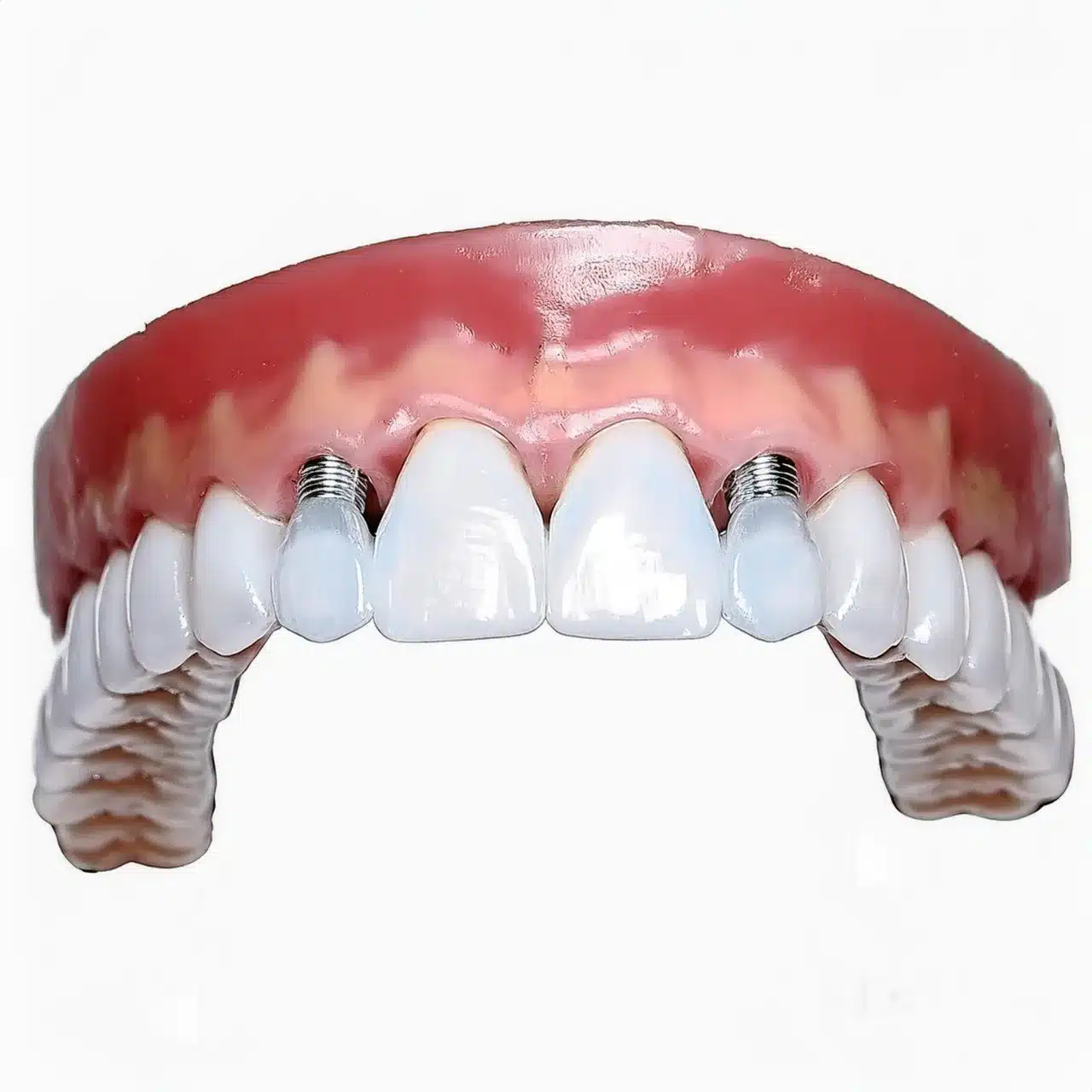
Confort et stabilité
Angled All-on-4 implants have more comfort and stability than traditional implants, especially for patients with bone loss (5).
The tilted angle of the angled implants allows for better force distribution, less risk of implant failure and more patient satisfaction (6).
Traditional dental implants or Angled All-on-4 Implants
Considérations
Bone: Bone quality is a key factor in choosing between traditional and angled All-on-4 implants. Patients with poor bone quality will benefit more from angled implants (17).
Esthétique: Patients with high aesthetic demands will prefer traditional implants for their natural look, but angled implants can also give excellent aesthetic results with proper planning (18).
Budget: Angled All-on-4 implants are more cost-effective but the final cost will depend on the complexity of the case and the materials used (19).
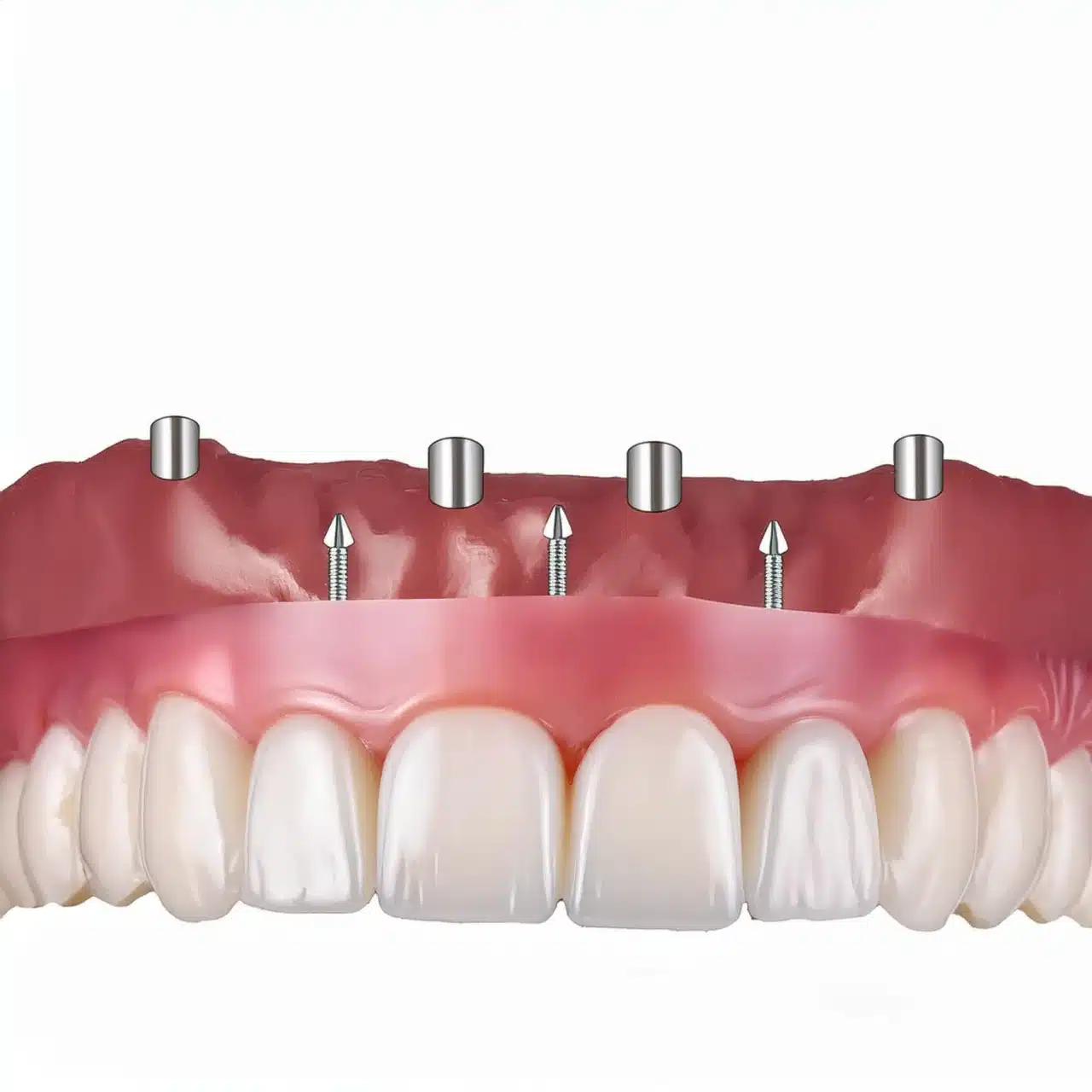
Who’s Who
Traditional All-on-4 Implants: For patients with enough bone density and those who prefer the traditional way. For patients who need high aesthetic customization (20).
Angled All-on-4 Implants: For patients with bone loss, immediate functionality, cost-effective solution. For patients with posterior mandibular and maxillary bone loss (21).
| Aspect | Traditional All-on-4 Implants | Angled All-on-4 Implants |
|---|---|---|
| Densité osseuse | Ideal for patients with sufficient bone density[20] | Suitable for patients with jawbone loss and lower bone density[21] |
| Aesthetic Needs | Suitable for patients who require a high level of aesthetic customization[20] | Can provide excellent aesthetic results with proper planning[18] |
| Budget Considerations | Generally more expensive due to potential additional procedures[5] | More cost-effective, starting from approximately €6,000 for a full arch restoration[19] |
Conclusion et enseignements clés
Principaux enseignements:
Angled All-on-4 implants are cost-effective with immediate functionality and less bone grafting.
Traditional All-on-4 implants for patients with enough bone density and high aesthetic demands.
Choose between traditional and angled All-on-4 implants depends on patient needs and bone health.
Conclusion : Choosing the right All-on-4 implant is key for full arch success. By knowing the differences and advantages of traditional and angled All-on-4 implants, patients can make informed decisions that fit their needs and budget.
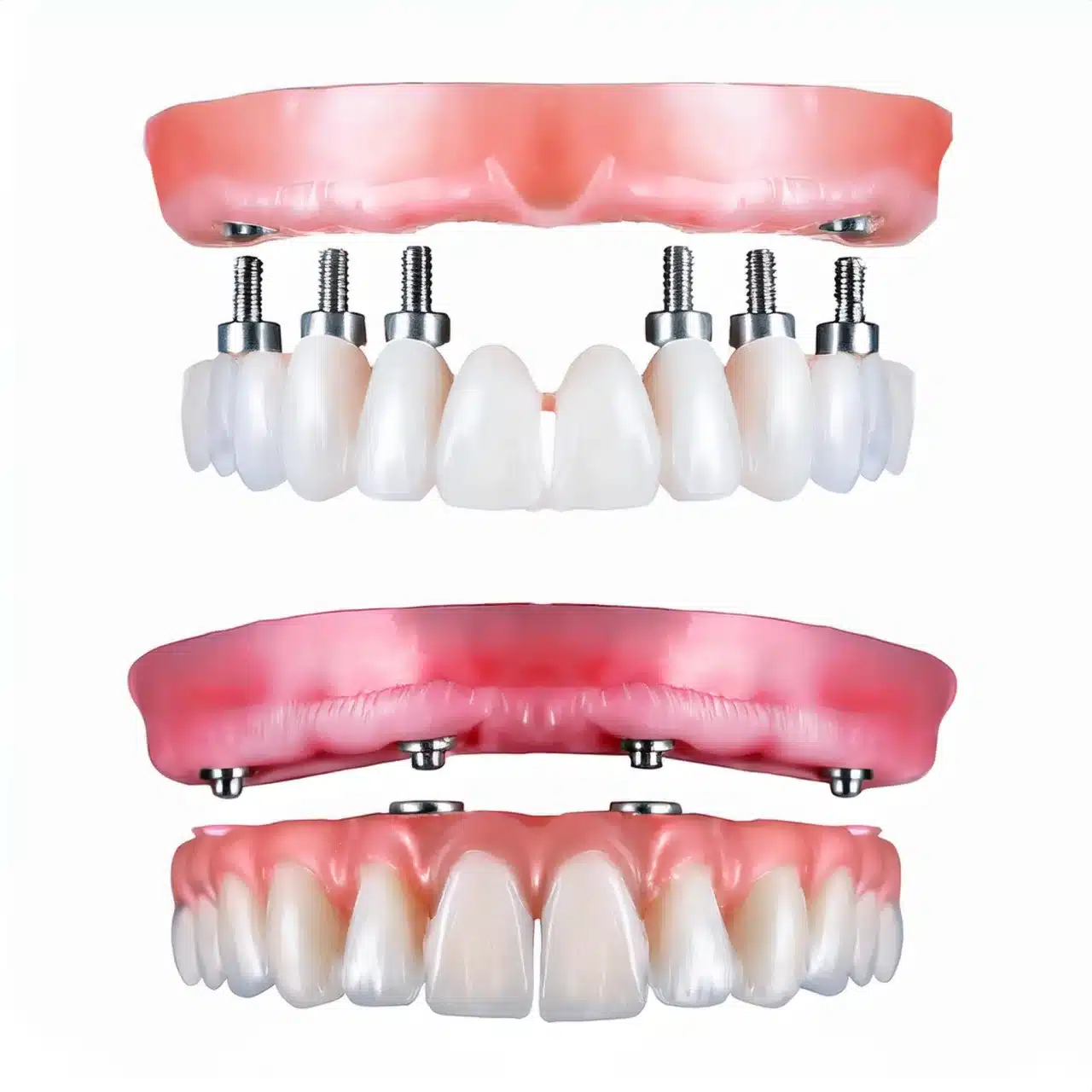
FAQ
Références
- Taruna M, Chittaranjan B, Sudheer N, Tella S, Abusaad M. Prosthodontic Perspective to All-On-4 Concept for Dental Implants. J Clin Diagn Res. 2014;8(10):ZE01-ZE04.
Article : Perspective prosthodontique du concept All-On-4 pour les implants dentaires - Esposito M, Grusovin MG, Maghaireh H, Worthington HV. Interventions for replacing missing teeth: different types of dental implants. Cochrane Database Syst Rev. 2014;(7):CD003815.
Article : Interventions pour le remplacement des dents manquantes : différents types d'implants dentaires - Krekmanov L, Kahn M, Rangert B, Lindström H. Tilting of posterior mandibular and maxillary implants for improved prosthesis support. Int J Oral Maxillofac Implants. 2000;15(3):405-414.
Article: [Tilting of posterior mandibular and maxillary implants for improved prosthesis support](https://www.quintpub.com/journals/omi/abstract.php?iss2_id=138&article_id=1385&article=6&title= Tilting of Posterior Mandibular and Maxillary Implants for Improved Prosthesis Support#.Y3D6XHZMK00) - Maló P, Rangert B, Nobre M. “All-on-Four” immediate-function concept with Brånemark System implants for completely edentulous mandibles: a retrospective clinical study. Clin Implant Dent Relat Res. 2003;5 Suppl 1:2-9.
Article : “All-on-Four” immediate-function concept with Brånemark System implants for completely edentulous mandibles: a retrospective clinical study - Babbush CA, Kutsko GT, Brokloff J. The “All-on-Four” immediate function treatment concept with NobelActive implants: a retrospective study. J Oral Implantol. 2011;37(4):431-445.
Article : The “All-on-Four” immediate function treatment concept with NobelActive implants: a retrospective study - Agliardi E, Panigatti S, Clerico M, Villa C, Maló P. Immediate rehabilitation of the edentulous jaws with full fixed prostheses supported by four implants: interim results of a single cohort prospective study. Clin Oral Implants Res. 2010;21(5):459-465.
Article : Immediate rehabilitation of the edentulous jaws with full fixed prostheses supported by four implants: interim results of a single cohort prospective study
